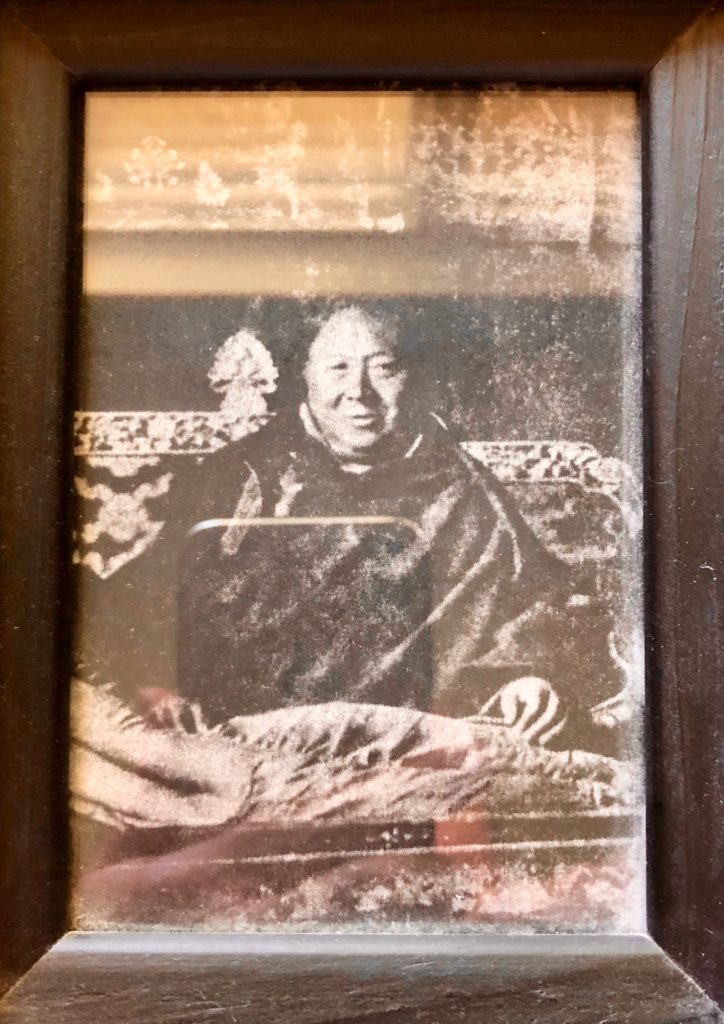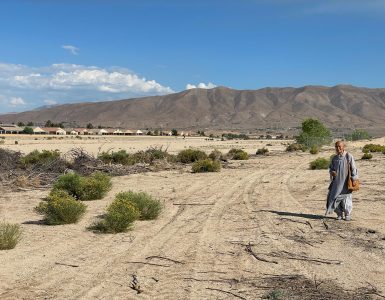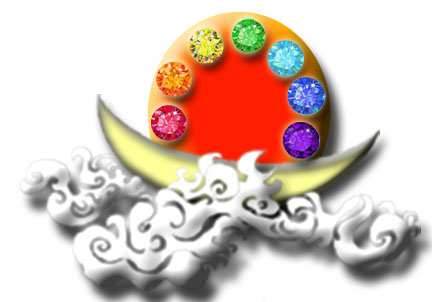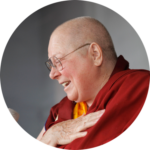
A new course on “D04(A)-Determining Who Is a True Vajra Master” is now available for Auditing and other students at the Learning from Buddha College & Seminary. It contains video recordings of readings of the preliminary translation of a discourse on “Determining Who Is a True Master” that was given by H.H. Dorje Chang Buddha III during the Exposition of Dharma During Trip to the East in 2008. It was given after H.H. Dorje Chang Buddha III gave a series of commentaries on the Sutra on Understanding and Realizing the Definitive Truth. These and other discourses were given to a group of senior students who traveled with the Buddha Master as He took a road trip across the United States. He expounded the Dharma every night they camped out on that trip, answering the most important questions asked by these advanced students.
After His Holiness gave discourses on cultivation and understanding the holy truth He gave this two-part discourse on how to find a master who will guide you to liberation. He stressed how there are very many fake and dangerous masters who will not guide you to attain liberation—who do not have correct view or are able to guide you. Some very famous masters are charlatans or even demons. They exist in all sects and traditions and at all levels. You must be very careful and not just follow someone because of his status or reputation. YOU must be able to determine that which is true and that which is false, and you need to listen to and study the various discourses given by H.H. Dorje Chang Buddha III to be able to do that. You can find many of those discourses at the Learning from Buddha College and Seminary. We use the “Seven-Dharma” system of study to enable you to deeply penetrate what our Budddha Master taught.
This course offers the Buddha Master’s guidance on how to tell a true master. It explains how rinpoches are recognized, but most importantly it tells you that you must listen to and understand the discourses given by the Buddha Master and be able to tell if any given Dharma Master or Rinpoche holds views that are consistent or inconsistent with what the Buddha Master taught.
Don’t be fooled by how many disciples any master has of how great his or her temple is. The first part deals with what to look for in a master and whether the dharma master or rinpoche is a person of good virtue. This was the subject of an on-line class held July 9 for the Lemonade Sangha.
The second part of this discourse includes a chant that is part of our morning reflection at the temple that every master must follow entitled “The Wrongs of Others Are My Wrongs.” It also discusses how to recognize four types of Masters: 1-Dharma masters or rinpoches with good virtue and with or without holy realization; 2-Rinpoches with penetrating realizations; 3-Rinpoches with greatly penetrating realization (Mahasattvas): and 4-Rinpoches who are incarnations of Buddhas. I also recorded that part of the discourse for this LFBCS class. This course, D04(A), is just the recorded discourse. The full class and part of the discussion from the on-line class will be added later as D04 for the Seminary and Buddhist Studies Students.
Pabongka Rinpoche (1878-1941), a famous and popular Tibetan Master of the Geluk sect, is shown above as a master whom the Buddha Master spoke favorably of. We will use his commentary in some of the courses at LFBCS.




Add comment